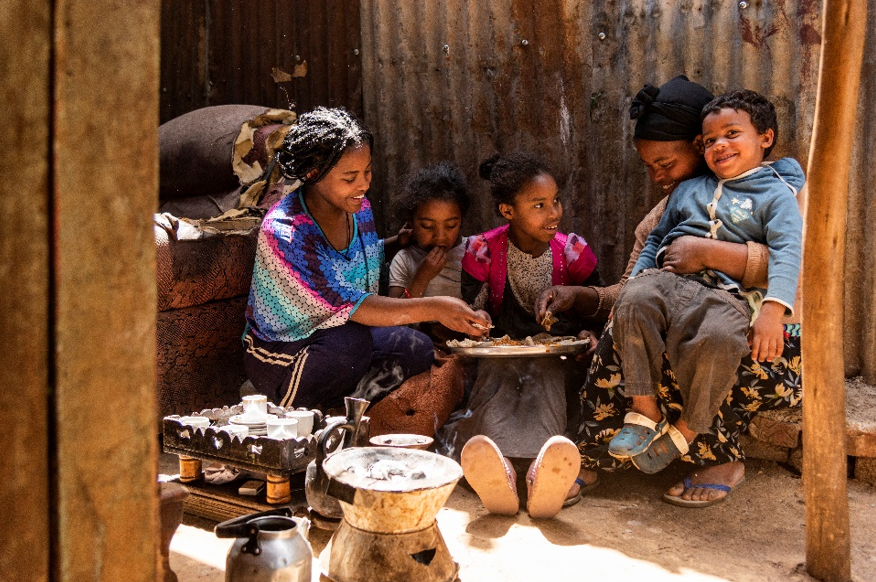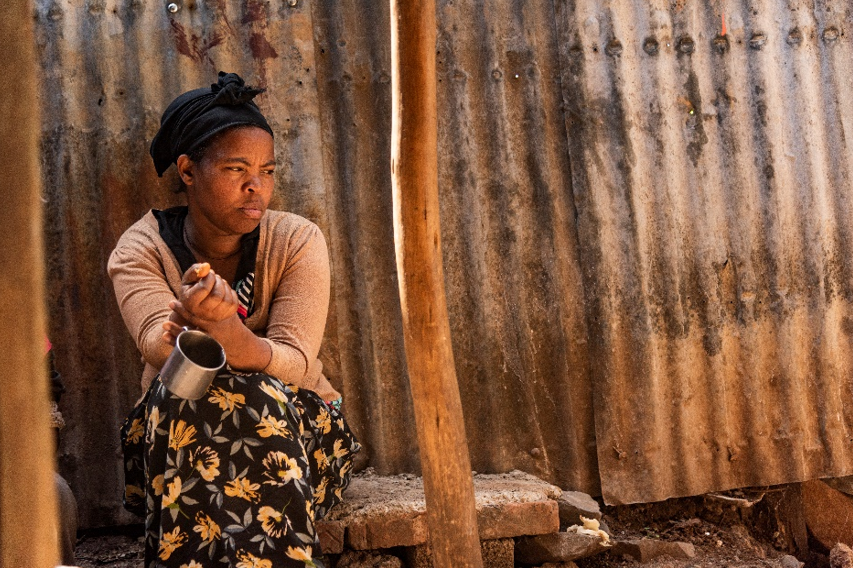While many in the United States have moved on from COVID-19 and into other matters of safety and injustice, the developing world only continues to fall deeper into the virus.
WATCH: Cop Shuts Down Protesters Demand to Kneel Before Them
The COVID pandemic has caused more than just inconvenience and uncertainty in the developing world. It has become a matter of life and death – and not just from the virus itself. Families already struggling to put enough food on the table for their families to survive each day are now facing seemingly insurmountable odds.
Closures, social distancing, and restrictions mean that many impoverished families are no longer able to work, and thus cannot feed their children. In fact, UN World Food Programme Executive Producer David Beasley predicts that, due to lost income during COVID-19, the number of people who are “facing crisis levels of hunger or worse” will almost double from 135 million to 265 million between now and the end of 2020.
A Personal Story From The Developing World
One victim of this trend is Abiyot, a single mother in Ethiopia.
Abandoned by her husband, she barely made enough as a school cook to take care of her family’s basic needs even before the pandemic struck. Her situation was so desperate and hopeless, that she felt it was better to send three of her children away. Maybe they could find provision elsewhere, since she couldn’t take care of them the way they needed.
But even after sending away three of her children, she was left with six hungry mouths to feed. The six remaining at home relied on their school for breakfast and lunch during the week. Even so, Abiyot and her children often went hungry during the weekends because she could not afford the extra food.
Then COVID-19 swept in.
The school that employed Abiyot closed, leaving her with no income. She was overwhelmed by hopelessness. “My heart was broken when the school closed, and my part-time employers told me they don’t need my help anymore because of COVID-19. Every door was shut in my face,” Abiyot lamented.
She soon ran out of food and the thought of her children starving to death left her in despair. With all her money exhausted, Abiyot turned to the only place she could think of for help – the local church. Her tears fell uncontrollably as she explained the dire situation she faced.
Hope While COVID Continues to Ravage Developing World
Abiyot had one thing in her favor. Her four-year-old son, Habtamariam, was enrolled in a child sponsorship program funded by Christian nonprofit Compassion International at their local church.
Program director Tsege was already familiar with Abiyot’s circumstances, and she was eager to help. “I knew the struggle Abiyot faced even before the health crisis,” she recounted, “When she came and told me she had nothing to feed her children that day, I was heartbroken. I collected money from the staff and myself so she could go buy food for the children immediately until I could consult with the program facilitator and decide how best to help her.”
Thanks to Tsege’s quick response and eagerness to provide relief, Abiyot’s children were able to enjoy a meal that night.
Soon after, Tsege called the family back to the church and gave them the news that, through Compassion, the church was able to provide them with enough funds to provide food until the COVID crisis is over and work resumes. Upon hearing this news, Abiyot’s eldest daughter rejoiced and told her brother, “Thank God you were born! It is because of you that we have food in the house.”
Relieved of her burden, Abiyot is grateful to the church and Compassion. “They have rescued my children from hunger,” she said, “They are the reasons I didn’t grumble against God, but they were my reasons to give thanks to Him. I clearly see why God brought us to the church. Where would I have gone for help?”

The church has also identified a number of other families at risk of starvation and is supplying them with the same type of care. Although there is still much work to be done, the partnership between Compassion International and local churches has made it possible for families like Abiyot’s rest easy – even during a pandemic.


